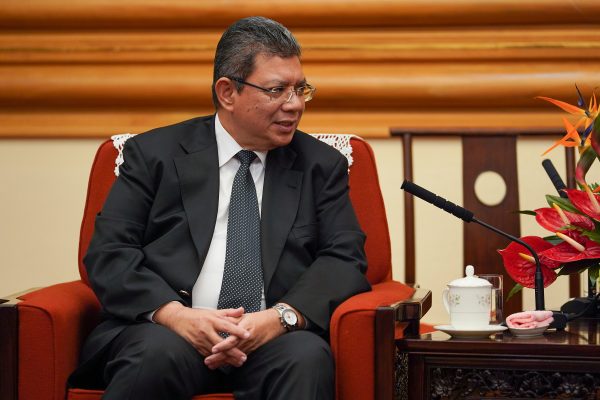The Ministry of Foreign Affairs announced a ‘new foreign policy framework’ in 2019, prompting expectations of broad changes in policy from PHs ‘New Malaysia’. But the few anticipating great change in foreign policy have generally been disappointed.
Malaysia’s position abroad hardly changed before and after the election. It would be unrealistic to expect an election centred on domestic policy, scandals, incumbent leaders and specific personalities to overhaul Malaysia’s overseas posture. Where financial scandals impacted election rhetoric, they had overwhelmingly domestic causes and repercussions. The weaknesses and liabilities of the systems that enabled these scandals were Malaysian rather than foreign.
Foreign policy reflects a country’s external interests and aspirations — Malaysia’s remain largely unchanged.
Prior to the election, Chinese-linked construction projects were reportedly cancelled or suspended due to overspending and then allowed to continue. Then opposition leader Mahathir Mohamad’s pre-election rhetoric built on alarmism over this, but post-election realities soon dawned for the newly elected PH — dropping projects that had already begun meant wastage and compensation costs. The better option was cutting costs, reducing project scales and providing for more Malaysian participation.
There has been limited change in foreign policy since domestic issues are the main source of difference between the political parties — foreign policy rarely featured in the election as a sticking point. Malaysian foreign policy has abided by international goodwill, international conventions and UN obligations. No constituency has challenged it.
As a co-founder of ASEAN, Malaysia’s stake in it has been high and remains so. ASEAN assures Malaysia’s national prerogatives by asserting collective regional authority. The growing interest in the region held by today’s significant powers, such as China, the United States, Russia, Japan, South Korea, India and Australia, makes ASEAN even more indispensable for Malaysian foreign policy.
Malaysia has always valued China’s importance in underpinning the stability and growth of the region. How China managed this was never an issue so long as it respected Malaysia’s sovereignty. Malaysia never shared old imperial Europe’s exploitative intent towards China nor Pax Americana’s approach of strategic competition towards it.
Those with preconceived notions of PH’s position on China given its rhetoric on Malaysian Belt and Road projects were ‘disappointed’. When Mahathir spoke of ‘neo-colonialism’ in Beijing in direct response to a question about US–China trade relations — in reference to the history of Western colonialism in Asia — Western media interpreted it as Mahathir discussing the prospect of China’s neo-colonialism in South-East Asia. Yet Mahathir has often remarked on Western colonial intent in Asia as compared to China’s record of non-colonial relations in the region.
Malaysia’s new foreign policy framework is not without some changes, though the changes are not fundamental in nature or scope. The differences are largely in emphases, priorities and prudent budgeting, including the proposal of a review into the vast number of foreign missions.
Another change lies in asserting greater solidarity with the developing world and dispossessed peoples, such as Palestinians and Rohingyas, and being more vocal abroad when facing up to major powers. But all these ‘changes’ were already features of Malaysian foreign policy during Mahathir’s initial 22 years as prime minister from 1981–2003 — things were hardly different this time around. A new determinant is financial constraint where obligations from foreign commitments may be reviewed and re-evaluated on their cost-effectiveness.
There are also ideational constraints on Malaysian policymaking if it is to remain consistent and credible. A diverse Malaysia is a microcosm of the diversity in the wider world. How credible an enlightened Malaysian foreign policy is depends on how its values and principles can be developed domestically.
Malaysia’s record under PH made for more disappointment than hope. The retreat from PH’s pledges to ratify the Rome Statute of the International Criminal Court and the International Convention on the Elimination of All Forms of Racial Discrimination speaks volumes about PH’s inability to herald change. Demagogues have claimed that ratification would cede national sovereignty and render Malaysia’s Head of State vulnerable to prosecution abroad.
It did not matter that none of this was true, or even that critics neither believed nor understood what they said. It mattered only that Malaysia’s progressive moves could be blocked and the PH government humiliated. The chauvinists that thrive on the identity politics of racial and religious discrimination feared ratification would disempower them by barring their modus operandi. PH’s failure to sufficiently prepare the ground for ratification and failure to mount a counter-narrative swiftly and effectively further revealed its inherent weaknesses.
Notwithstanding the flurry of changes in government positions and personalities, and the formal collapse of PH from defections in late February 2020 — including Mahathir’s shock resignation as Prime Minister leading to his interim premiership — Malaysian foreign policy for now and the foreseeable future is likely to remain unchanged.
Bunn Nagara is a Senior Fellow at the Institute of Strategic and International Studies (ISIS) Malaysia.

